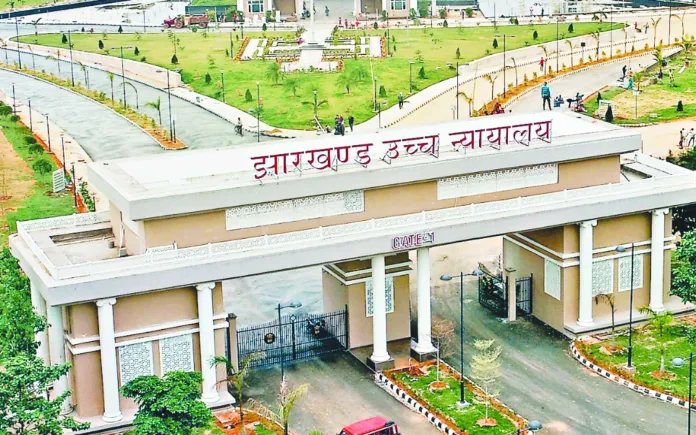The Jharkhand High Court stated that the court must pay closer attention to the details to ensure that innocent people are not subjected to harassment in rape cases.

The Jharkhand High Court stated that it has a greater duty to interpret situations carefully to prevent innocent individuals from facing harassment and unnecessary trials. This comment was made during hearings on writ petitions related to a rape case against the accused. Justice Sanjay Kumar Dwivedi, sitting alone, noted that while the High Court does not need to investigate further if a case is established, it must also be vigilant against malicious prosecution. If the court does not intervene in such cases, it could lead to an abuse of legal processes. Therefore, the court has a heightened responsibility to read between the lines to protect innocent people from harassment and trial.
In this case, the informant claimed that a woman promised her a job as a ‘computer operator.’ However, when she arrived in Ranchi, she was instead given household chores at the accused’s home. The informant worked there, cooking meals after attending college. She alleged that the accused’s behavior was inappropriate and that he began to harass her. It was reported that whenever she brought him tea, he would touch her inappropriately. One night, in a drunken state, he allegedly assaulted her. The informant slapped him and ran upstairs, but he followed her, continued to harass her, and demanded sexual favors. Despite her screams, no one came to help, and he allegedly forced himself on her. She later shared her experience with other staff members. Meanwhile, the accused reportedly called her to apologize and urged her not to tell anyone about the incident. The informant eventually left his house on July 2020.
It was finally claimed that whenever the informant rejected the petitioner’s advances, she faced abuse related to her caste. The High Court, considering these facts, stated, “The Court agrees with the judgment cited by the respondent-State’s counsel in the case of ‘Gian Singh.’ It is clear that serious crimes cannot be dismissed solely based on a settlement, as established in ‘Gian Singh.’ However, in this case, it appears that the petitioner has not resolved the issue with the informant by submitting any compromise petition.” The Court noted that the petitioner had supported a woman against the current Chief Minister of Jharkhand, suggesting that this situation was a setup, which is not denied in the counter affidavit, indicating that the case was filed maliciously against him. “Thus, the abuses should occur in a public place or a place visible to the public. The complaint itself is so trivial that no further action should be allowed,” it stated.
The Court also remarked that the alleged abuses did not happen in a public setting and that the complainant’s actions seemed to misuse legal provisions for personal revenge. “Cases like this, where the law is misused, can overshadow genuine complaints from those who have truly suffered. Given the facts presented, the judgments in Hitesh Verma and Gorige Pentaiah are relevant to this case,” it added. The Court concluded that allowing the criminal proceedings to continue against the petitioner would be an abuse of the legal process.
Cause Title- Sunil Tiwari v. The State of Jharkhand & Anr.
Appearance:
Petitioner: Advocates Prashant Pallava, Parth Jalan, and Shivani Jaluka.
Respondents: Senior Advocate Gopal Shankar Narayanan, GA Manoj Kumar, AC Deepankar Roy, and Advocate Amrendra Pradhan.









